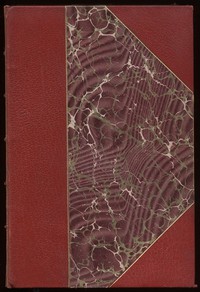Guy Mannering; or, The Astrologer — Complete by Walter Scott (good books to read in english .TXT) 📗

- Author: Walter Scott
Book online «Guy Mannering; or, The Astrologer — Complete by Walter Scott (good books to read in english .TXT) 📗». Author Walter Scott
‘Deil hae me, if they arena a’ mad thegither!’ said Dinmont, occupying with less ceremony a seat at the bottom of the table; ‘or else they hae taen Yule before it comes, and are gaun a-guisarding.’
A large glass of claret was offered to Mannering, who drank it to the health of the reigning prince. ‘You are, I presume to guess,’ said the monarch, ‘that celebrated Sir Miles Mannering, so renowned in the French wars, and may well pronounce to us if the wines of Gascony lose their flavour in our more northern realm.’
Mannering, agreeably flattered by this allusion to the fame of his celebrated ancestor, replied by professing himself only a distant relation of the preux chevalier, and added, ‘that in his opinion the wine was superlatively good.’
‘It’s ower cauld for my stamach,’ said Dinmont, setting down the glass--empty however.
‘We will correct that quality,’ answered King Paulus, the first of the name; ‘we have not forgotten that the moist and humid air of our valley of Liddel inclines to stronger potations. Seneschal, let our faithful yeoman have a cup of brandy; it will be more germain to the matter.’
‘And now,’ said Mannering, ‘since we have unwarily intruded upon your majesty at a moment of mirthful retirement, be pleased to say when you will indulge a stranger with an audience on those affairs of weight which have brought him to your northern capital.’
The monarch opened Mac-Morlan’s letter, and, running it hastily over, exclaimed with his natural voice and manner, ‘Lucy Bertram of Ellangowan, poor dear lassie!’
‘A forfeit! a forfeit!’ exclaimed a dozen voices; ‘his majesty has forgot his kingly character.’
‘Not a whit! not a whit!’ replied the king; ‘I’ll be judged by this courteous knight. May not a monarch love a maid of low degree? Is not King Cophetua and the Beggar-maid an adjudged case in point?’
‘Professional! professional! another forfeit,’ exclaimed the tumultuary nobility.
‘Had not our royal predecessors,’ continued the monarch, exalting his sovereign voice to drown these disaffected clamours,--’had they not their Jean Logies, their Bessie Carmichaels, their Oliphants, their Sandilands, and their Weirs, and shall it be denied to us even to name a maiden whom we delight to honour? Nay, then, sink state and perish sovereignty! for, like a second Charles V, we will abdicate, and seek in the private shades of life those pleasures which are denied to a throne.’
So saying, he flung away his crown, and sprung from his exalted station with more agility than could have been expected from his age, ordered lights and a wash-hand basin and towel, with a cup of green tea, into another room, and made a sign to Mannering to accompany him. In less than two minutes he washed his face and hands, settled his wig in the glass, and, to Mannering’s great surprise, looked quite a different man from the childish Bacchanal he had seen a moment before.
‘There are folks,’ he said, ‘Mr. Mannering, before whom one should take care how they play the fool, because they have either too much malice or too little wit, as the poet says. The best compliment I can pay Colonel Mannering is to show I am not ashamed to expose myself before him; and truly I think it is a compliment I have not spared to-night on your good-nature. But what’s that great strong fellow wanting?’
Dinmont, who had pushed after Mannering into the room, began with a scrape with his foot and a scratch of his head in unison. ‘I am Dandie Dinmont, sir, of the Charlie’s Hope--the Liddesdale lad; ye’ll mind me? It was for me ye won yon grand plea.’
‘What plea, you loggerhead?’ said the lawyer. ‘D’ye think I can remember all the fools that come to plague me?’
‘Lord, sir, it was the grand plea about the grazing o’ the Langtae Head!’ said the farmer.
‘Well, curse thee, never mind; give me the memorial and come to me on Monday at ten,’ replied the learned counsel.
‘But, sir, I haena got ony distinct memorial.’
‘No memorial, man?’ said Pleydell.
‘Na, sir, nae memorial,’ answered Dandie; ‘for your honour said before, Mr. Pleydell, ye’ll mind, that ye liked best to hear us hill-folk tell our ain tale by word o’ mouth.’
‘Beshrew my tongue, that said so!’ answered the counsellor; ‘it will cost my ears a dinning. Well, say in two words what you’ve got to say. You see the gentleman waits.’
‘Ou, sir, if the gentleman likes he may play his ain spring first; it’s a’ ane to Dandie.’
‘Now, you looby,’ said the lawyer, ‘cannot you conceive that your business can be nothing to Colonel Mannering, but that he may not choose to have these great ears of thine regaled with his matters?’
‘Aweel, sir, just as you and he like, so ye see to my business,’ said Dandie, not a whit disconcerted by the roughness of this reception. ‘We’re at the auld wark o’ the marches again, Jock o’ Dawston Cleugh and me. Ye see we march on the tap o’ Touthop-rigg after we pass the Pomoragrains; for the Pomoragrains, and Slackenspool, and Bloodylaws, they come in there, and they belang to the Peel; but after ye pass Pomoragrains at a muckle great saucer-headed cutlugged stane that they ca’ Charlie’s Chuckie, there Dawston Cleugh and Charlie’s Hope they march. Now, I say the march rins on the tap o’ the hill where the wind and water shears; but Jock o’ Dawston Cleugh again, he contravenes that, and says that it bauds down by the auld drove-road that gaes awa by the Knot o’ the Gate ower to Keeldar Ward; and that makes an unco difference.’
‘And what difference does it make, friend?’ said Pleydell. ‘How many sheep will it feed?’
‘Ou, no mony,’ said Dandie, scratching his head; ‘it’s lying high and exposed: it may feed a hog, or aiblins twa in a good year.’
‘And for this grazing, which may be worth about five shillings a year, you are willing to throw away a hundred pound or two?’
‘Na, sir, it’s no for the value of the grass,’ replied Dinmont; ‘it’s for justice.’
‘My good friend,’ said Pleydell, ‘justice, like charity, should begin at home. Do you justice to your wife and family, and think no more about the matter.’
Dinmont still lingered, twisting his hat in his hand. ‘It’s no for that, sir; but I would like ill to be bragged wi’ him; he threeps he’ll bring a score o’ witnesses and mair, and I’m sure there’s as mony will swear for me as for him, folk that lived a’ their days upon the Charlie’s Hope, and wadna like to see the land lose its right.’
‘Zounds, man, if it be a point





Comments (0)